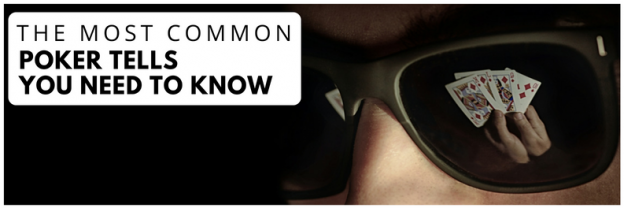Kenny Rogers may have trademarked the phrase “You gotta know when to hold ‘em, know when to fold ‘em”, but there is one key element of the poker game he missed out in his 1979 hit: knowing when to spot a poker tell.
And it doesn’t just affect novices, either. Even the most prolific of players have been known to give their game away with a slight flicker of the eyes or an all-too-speedy check.
So, how can you keep your tells hidden from opponents? Take a look below at the most common poker tells to see how you can perfect your poker face.
1. Staring opponents down
While staring at opponents can pile the pressure on, it can often imply that you have a weak hand and are eager for them to fold. Many amateurs choose to take on this tactic as a means of intimidation, and, as such, can see them come up short. This is why, if you are playing poker for the first time, it’s a good idea to focus on your own game and not think too much about what others are doing – by staring intently you could inadvertently give your hand away.
Alternatively, if you notice another player staring you down, try to avoid averting your gaze as this could similarly come across as defensive. Be measured and stand your ground – they are more than likely feigning strength to get you to fold, so you shouldn’t feel intimated.
2. Immediately checking
Timing is a huge part of poker, from knowing when to look up from your cards to deciding when to raise. However, if your timing game is off, you could accidentally reveal a lot about what you hold in your hands.
If you immediately check, for instance, your opponents might infer that you are yet to improve on your hand, or haven’t hit anything worthwhile on the flop. This could then tell your opponents that you hold a weak hand and, thus, are a weak opponent who should be heavily bet against.
3. Imperfect speech play
Speech play is a tactic favoured by many poker pros, with legends such as Will Kassouf using it to manipulate his opponents. However, speech play takes years of practice to perfect and, if done poorly, could see other players take advantage.
Talking loudly at the table, talking too often or repeating phrases are common “false tells” and can lead other players to believe you hold a weak hand. Similarly, stating false disclaimers, such as “Well, I guess I have to play this hand” are a sign that you actually hold a strong hand and are trying to throw others off the scent.
4. Showing reluctance
Poker is just as much about power play as it is about the strength of one’s hand, so it is worth understanding how dominant you come across at the table before placing any big bets.
Shaky hands, fidgeting over chips and reluctant betting are all signs of a weak hand, and are particularly telling during the early stages of a poker game. On the other hand, if you notice a player has shaky hands but is deep in a big pot, it is less likely they are holding a weak hand and simply have shaky hands by default.
You should also be aware of players who are purposely delaying their bets, as this is an obvious bluff; they have likely already decided what to play and are trying to pull your strings like a puppet.
Now you know how to spot a poker tell, it’s time to put your new-found knowledge to the test. Head to our online poker portal to get started today.

Leave a Reply